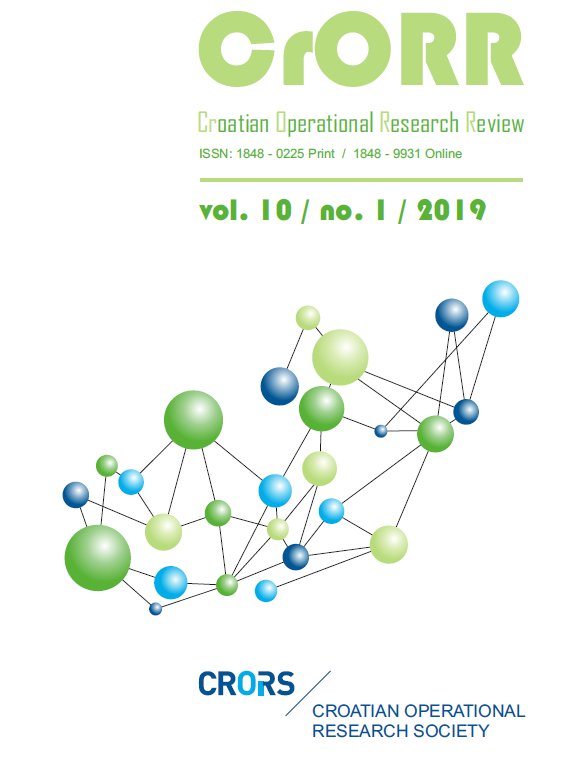Group efficiency analysis in decision processes: a data envelopment analysis approach
Group efficiency analysis in decision processes
Abstract
Data envelopment analysis (DEA) is a powerful mathematical programming methodology for evaluating the relative efficiency of decision-making units (DMUs) with multiple outputs and multiple inputs. In the classic DEA, it has been implicitly assumed that all DMUs perform in a unique technology set and the traditional DEA cannot measure the relative performances of DMUs with dissimilar classes. In other words, if we have different groups of DMUs, the traditional DEA models cannot be applied to evaluate such cases. In this paper, it has been assumed that the DMUs do business in different groups. We are interested to evaluate the members of the groups. The main aim of this paper is proposing a DEA-based methodology to estimate the technical efficiency of DMUs along with different groups with different technologies. The proposed method is illustrated by an empirical example on banking industry.
Downloads
Published
Issue
Section
License
- Authors retain copyright and grant the journal right of first publication with the work simultaneously licensed under a Creative Commons Attribution License that allows others to share the work with an acknowledgement of the work's authorship and initial publication in this journal
- Authors are able to enter into separate, additional contractual arrangements for the non-exclusive distribution of the journal's published version of the work (e.g., post it to an institutional repository or publish it in a book), with an acknowledgement of its initial publication in this journal.
- Authors are permitted and encouraged to post their work online (e.g., in institutional repositories or on their website) prior to and during the submission process, as it can lead to productive exchanges, as well as earlier and greater citation of published work (See The Effect of Open Access).


